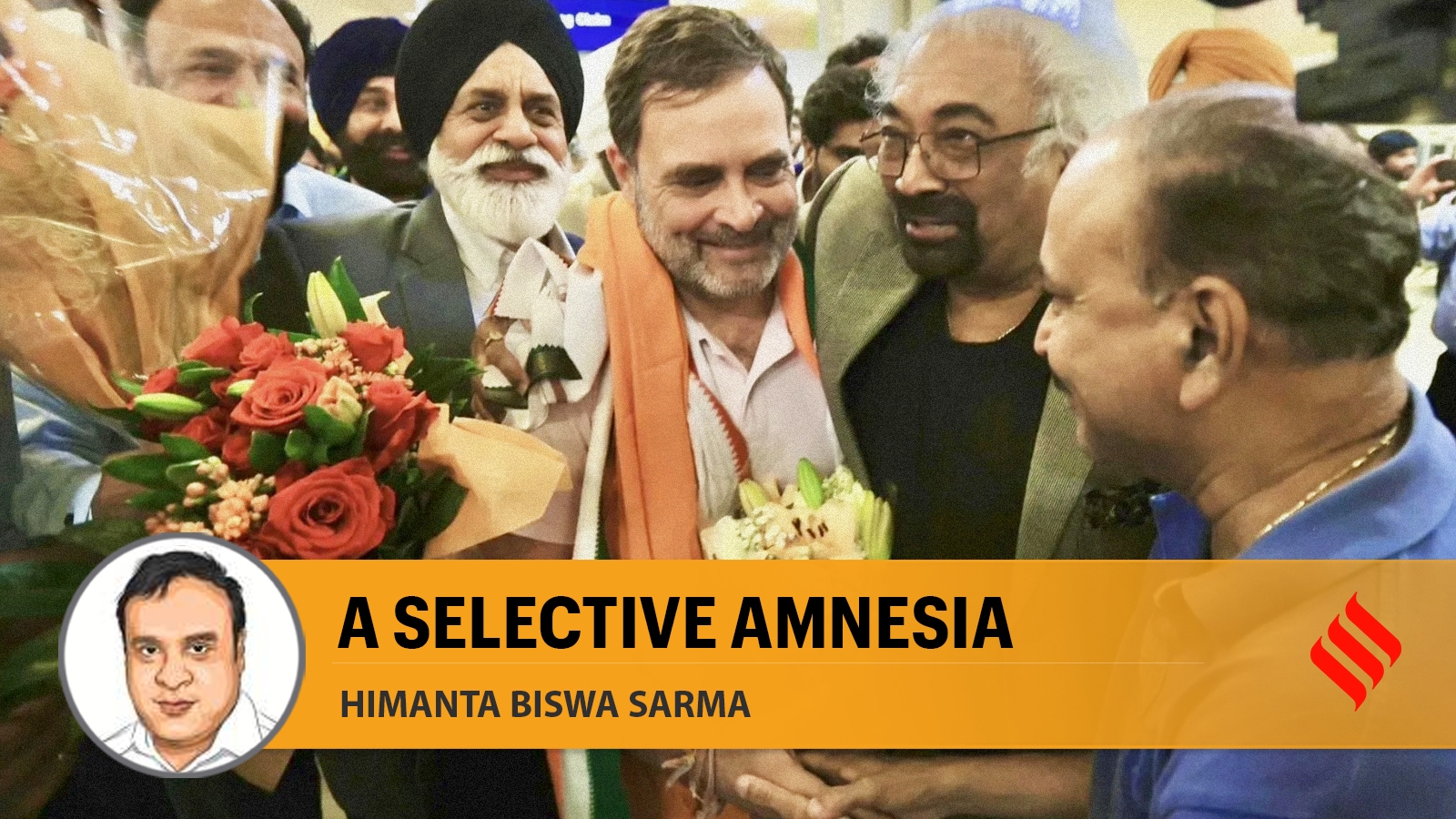Rahul Gandhi’s recent trip to the US has sparked controversy and exposed the risks of his approach. Belittling India’s democracy and its institutions on foreign soil may generate headlines. Still, such conduct is unbecoming of the Leader of Opposition, especially given his constitutional oath to uphold India’s sovereignty and integrity. It’s important to remember that India’s democracy is robust, and its institutions — despite challenges — continue to function well, which should be a source of pride for every citizen.
Yet, the LoP’s attempt to question the sanctity of India’s electoral process, the Election Commission, and the judiciary while abroad paints an inaccurate picture. His claim that the current dispensation has taken control of all institutions seems ironic, given Congress’s history of appointing loyalists.
In his conversation with Edward Luce, a columnist known for setting a skewed narrative bringing disrepute to the largest democracy, Gandhi accused the current elected regime of destroying the Constitution — a claim coming from the leader of a party that imposed the Emergency, the only period when India’s democratic credentials were threatened.
At Georgetown University, Gandhi presented arguments about caste-based reservation and wealth inequality and his critique of institutional capture by business elites and the government. While he defended caste-based reservation as necessary for ensuring representation of OBCs, Dalits, and tribals in sectors like business and government, he avoided addressing how Congress failed to uplift these communities despite being in power for decades. His assertion that Congress will remove reservation when there is a level playing field too indicates his double speak. His selective framing leaves questions about Congress’s role in perpetuating the disparities he now highlights.
Congress’s focus on caste as a political strategy is evident, and Gandhi has latched onto the narrative with his INDI Alliance partners. However, highlighting these issues in foreign forums, especially in the US, does little to advance the cause of justice. Instead, it portrays India as a deeply divided society and opens doors for adversarial elements, and as a matter that demands immediate attention and action or even foreign intervention.
Gandhi’s comments about social exclusion and wealth concentration carry potential geopolitical implications. His focus on caste and inequality, when voiced on international platforms, risks being interpreted in ways that empower separatist movements like the Khalistanis.
His false commentaries at the diaspora event in Dallas that Sikhs in India are being restricted in their religious practices is a dangerous game and was swiftly picked up by Khalistani leaders, turning his rhetoric into fodder for their agenda. The fact that these separatist elements found validation in his words shows the depth of this issue. Gurpatwant Singh Pannun, the chief of the banned Khalistani group, Sikhs for Justice, openly praised Gandhi’s remarks, and linked them to the group’s campaign for an independent Khalistan. It raises serious concerns about Gandhi’s judgement. Also, his participation in gatherings that include pro-Khalistan supporters is problematic. For the Leader of Opposition to be seen pandering to such philosophies does not augur well for the nation.
His statements seem to lack alignment with the current reality. His remarks about Sikhs facing restrictions in India do not reflect the reality. A 2021 Pew Research Center survey titled “Religion in India”, revealed that 93 per cent of Punjabi Sikhs felt proud to live in their state, and, like other religious groups in India, most did not perceive widespread discrimination against their community. In the survey, a remarkable 95 per cent of Sikhs expressed a strong sense of pride in their Indian identity. Gandhi yet again forgot that the party he represents was responsible for carrying out mass violence against Sikhs in Delhi’s streets.
Additionally, the distorted representation of China’s unemployment issues compared to India does not bode well. China is currently experiencing record-high youth unemployment rates, and its labour market continues to face significant challenges. Gandhi seems to have a fascination with China, overlooking the fact that its so-called development comes at the expense of democratic values and freedom.
He is free to appreciate China although it does not bode well with the very causes he is set to be fighting for but his meeting with Ilhan Omar is something his PR agencies should have avoided. This meeting at Capitol Hill could have severe repercussions for India’s image abroad and for the country’s national security. Omar has introduced anti-India resolutions and visited Pakistan-occupied Kashmir. Meeting such a figure is not just diplomatically questionable but also poorly reflects Gandhi’s judgement as the leader of India’s Opposition. Upholding India’s sovereignty and integrity must be the LoP’s guiding principle.
This linkage becomes more apparent when considering that Jammu and Kashmir, another region with a history of separatist tendencies, which has recently shown signs of stability, is also approaching elections. Gandhi’s critical comments about Indian democracy and the exclusion of marginalised groups fuel the arguments of the miniscule minority that are sponsoring for self-determination, whether in Punjab or Kashmir.
Gandhi has risked creating an image of a fractured India through the rhetoric which emboldens separatist movements and undermines efforts to maintain national cohesion. Such statements, especially when echoed on international platforms, would have dangerous ramifications. They play into the hands of those who seek to destabilise the nation.
Whether intentional or not, Gandhi’s presentation in the US demands introspection within the INDI Alliance; complacency in such sensitive matters can have outcomes no Indian voter desires.
The writer is Chief Minister of Assam



